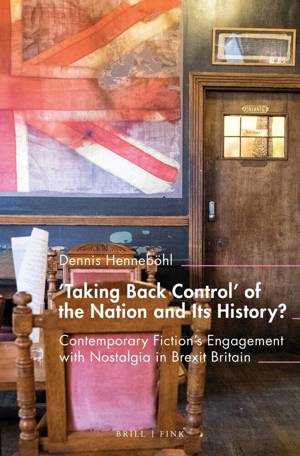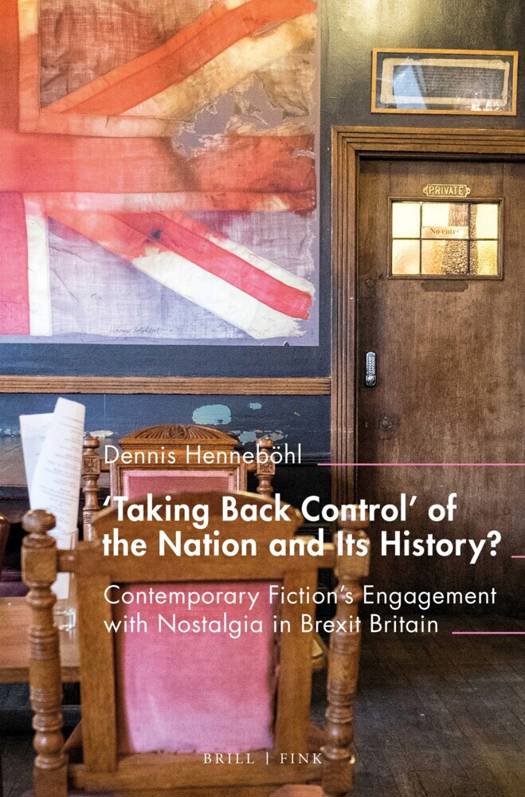
- Afhalen na 1 uur in een winkel met voorraad
- Gratis thuislevering in België vanaf € 30
- Ruim aanbod met 7 miljoen producten
- Afhalen na 1 uur in een winkel met voorraad
- Gratis thuislevering in België vanaf € 30
- Ruim aanbod met 7 miljoen producten
Zoeken
'Taking Back Control' of the Nation and Its History?
Contemporary Fiction's Engagement with Nostalgia in Brexit Britain
Dennis Hennebohl
€ 164,95
+ 329 punten
Omschrijving
Nostalgia not only played a decisive role in the outcome of the 2016 Brexit referendum - where it was most pointedly expressed in the infamous slogan 'Take Back Control' - but also shapes current British politics, culture, and society at large. The present monograph provides the first comprehensive critical analysis of this recent ubiquity of nostalgia from a British Cultural Studies perspective. Central to its newly developed narratological approach is the concept of the contemporary 'master narrative of nostalgia', the prevailing means of national self-assertion in Brexit Britain through which the dominant notions of British history and national identity are currently constructed. After discussing the master narrative's most important nostalgic tropes found in recent political rhetoric, the main part of the study then analyses the ways in which contemporary fiction from different media (literature, film, TV) engages and interrelates with the master narrative of nostalgia. The six case studies focus on historical fiction about the Second World War and the end of the British Raj, as well as on novels from the so-called 'BrexLit' genre responding to the outcome of the 2016 EU referendum.
Specificaties
Betrokkenen
- Auteur(s):
- Uitgeverij:
Inhoud
- Aantal bladzijden:
- 334
- Taal:
- Engels
- Reeks:
- Reeksnummer:
- nr. 21
Eigenschappen
- Productcode (EAN):
- 9783770568246
- Verschijningsdatum:
- 6/10/2023
- Uitvoering:
- Paperback
- Formaat:
- Trade paperback (VS)
- Afmetingen:
- 211 mm x 24 mm
- Gewicht:
- 553 g

Alleen bij Standaard Boekhandel
+ 329 punten op je klantenkaart van Standaard Boekhandel
Beoordelingen
We publiceren alleen reviews die voldoen aan de voorwaarden voor reviews. Bekijk onze voorwaarden voor reviews.








